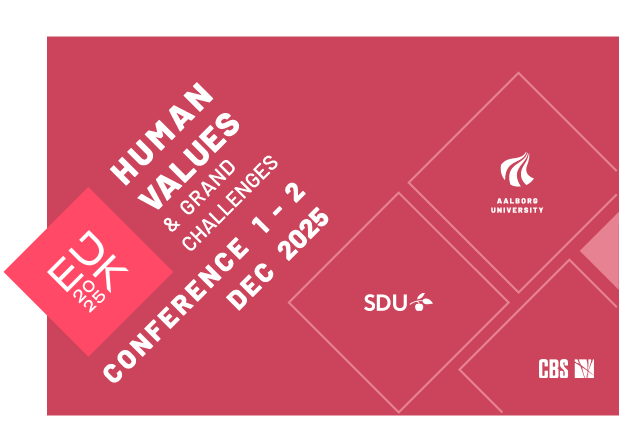An EU report shows the integration of social sciences, arts and humanities into European research is rising, but more needs to be done

Photo credits: Villa Copenhagen, Denmark
Social sciences, arts and humanities (SSAH) have a relatively strong presence in the EU’s Horizon Europe framework programme (2021-2027), according to a monitoring report published in July 2025. The European Commission considers SSAH input as key to addressing grand societal challenges and generally increasing the societal and economic impact of research and innovation (R&I) projects.
Focused on SSAH integration for projects funded in the period 2021-2023, the 1st Monitoring report on SSH-flagged projects found that 40% of topics under Pillar II (global challenges and European industrial leadership) were “SSH-flagged”, meaning SSH input was considered essential. While the monitoring report uses the term "social sciences and humanities (SSH)", rather than "SSAH", it does cover the contributions of arts as well.
These topics received €7.2 billion in funding, amounting to 41% of the total Pillar II budget, which compares with 33% in the Horizon 2020 programme. Overall, 88% of the projects had at least one SSAH partner, while 22% of the total partners were representatives of SSAH fields, the report adds.
“The results of the monitoring report show progress, but also that more needs to be done,” says Henrik Halkier, Professor of Regional and Tourism Studies at Aalborg University and one of the SSAH experts advising the Danish Agency for Higher Education and Science. “The SSAH integration currently stands at 40%. In my view, this figure is too low. If we want the EU to take a lead in human-centric R&I, the SSAH flag should be a requirement, not an exception.”
Bringing human values to bear
 Halkier is one of the main initiators of Human Values and Grand Challenges conference, hosted by Aalborg University on December 1-2, 2025 in Copenhagen as part of Denmark's Presidency of the Council of the European Union. The conference will address the need for a stronger focus on the role of human values and SSAH research and innovation in addressing grand challenges that Europe and the world are facing.
Halkier is one of the main initiators of Human Values and Grand Challenges conference, hosted by Aalborg University on December 1-2, 2025 in Copenhagen as part of Denmark's Presidency of the Council of the European Union. The conference will address the need for a stronger focus on the role of human values and SSAH research and innovation in addressing grand challenges that Europe and the world are facing.
“We can’t solve the world’s grand challenges with only technical fixes. We also need to understand the societal drivers that might be causing or influencing the challenges and create solutions that serve the needs of society,” urges Halkier, and he is not alone in his plea.
As the EU prepares the groundwork for its next multi-year budget, many experts have been calling for SSAH to be integrated into FP10 and thus “strengthen the backbone of an innovative and competitive Europe”. This lies at the core of SSAH integration, stresses Halkier. “It is not just about getting more money for SSAH. It’s about how to make more impactful R&I.”
The public conference in Copenhagen aims to address this gap and bring forward recommendations on how to achieve a more human-centric R&I and foster innovation in the design of science and technology policy and programmes. “As we find ourselves in the middle of negotiations for the next financial framework, the outcomes of the conference could be of great value in helping define how the EU programmes should be structured, and what specific mechanisms should be in place to ensure a better integration of SSAH,” says Halkier.
Uniting different disciplines
The Commission’s monitoring report itself concludes that, while “SSAH integration is well under way,” it remains necessary “to continue improving the integration of SSAH and STEM disciplines in EU-funded R&I initiatives”.
To this end, the report outlines key strategies for improving SSAH integration, such as establishing a common language to facilitate communication between disciplines, defining clear project goals that unite different disciplines and improving qualitative monitoring of SSAH contributions. Halkier sees these recommendations as a good starting point. “The Commission knows exactly in which direction to travel,” he says.
However, SSAH integration needs to take up deeper roots, he warns. Based on experience as well as the case studies featured in the report, Halkier notes that SSAH involvement in R&I projects is often very limited, making their true contribution to the projects rather unclear.
“Even if they are incorporated into the project, SSAH are often external to defining the goals and design of the research,” he cautions. “Having the norm of including SSAH in a central role would be very valuable and create more impactful results.”
The Commission should therefore remain committed to enhancing SSAH integration for greater societal impact in R&I activities and develop new ways of furthering this, he believes. “Achieving that would be a great step
REGISTER HERE for the conference.
The event is organised by Aalborg University, University of Southern Denmark and Copenhagen Business School, under the Danish EU Council Presidency with the support of the European Commission and in media partnership with Science|Business





 A unique international forum for public research organisations and companies to connect their external engagement with strategic interests around their R&D system.
A unique international forum for public research organisations and companies to connect their external engagement with strategic interests around their R&D system.